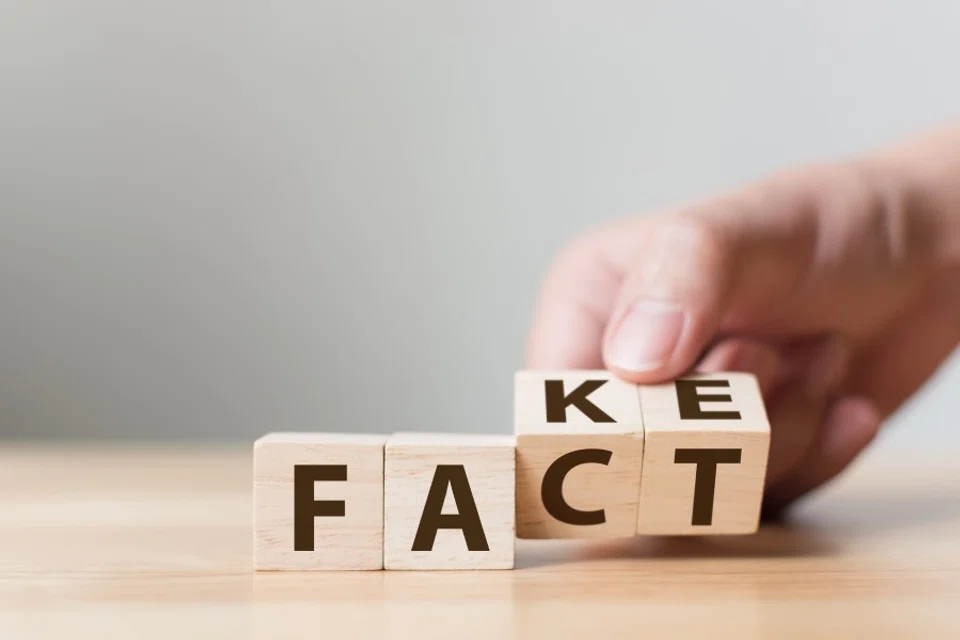The death of quality information

This is the information age, but the irony is, it is getting increasingly difficult for society, especially the middle class, to get information that is of value.
The main reason is the much smaller pool of meaningful information versus meaningless noise. In the pre-Internet age, producing and disseminating information was costly. It took a lot of time and money to publish a book or distribute a newspaper or magazine. One needed to pay for information. The high cost of creating and consuming information limited the production of meaningless noise.
In the Internet age, online platforms such as Facebook, Twitter, Weibo, and WeChat, make information production cheap. Much of it is available free, leading to an information explosion. Content creators come up with information targeted at people of different backgrounds, strata, and interests. Fake news is rampant. Given this huge amount of noise, it is getting harder for people to find information of value.
When junky Information becomes king
A more serious problem is that the online platform system allows poor quality information to be spread faster and wider than high-quality ones. This is very clear in China, as Chinese search engines have deteriorated over the past years.
Traditional information dissemination is like the solar system - spreading from the center, where all media receivers get the same information.
Those who see good information tend to keep it to themselves, rather than share it. On WeChat, one compliment about public accounts with the best essays is, "I wish I am the only one who knows about this account."
Information in the Internet age is spread mainly in three ways: search engines such as Google, push engines such as headlines of the day, and social media such as Facebook and WeChat. The biggest problem with push engines is that from a commercial perspective, its profit model requires it to maximise clicks and shares on its products, which is the only way to get enough advertising exposure and money. The core of social media is the number of shares by users, and they earn money through advertisements. In other words, for content creators on push engines or social media platforms, emotive, low-brow, and clickbait-worthy content is more likely to be commercially successful than informative, carefully created content.
Quality information is spread in a different way, usually through commercial value. In a macro sense, those with good information would gain commercial benefit out of it; in a micro sense, good information would cultivate the reader's mind, so that they benefit indirectly in the long term. Hence, it is difficult for good information to be disseminated in the information society, which is disappointing. Those who see good information tend to keep it to themselves, rather than share it. On WeChat, one compliment about public accounts with the best essays is, "I wish I am the only one who knows about this account."
Low-quality information and the online dissemination mechanism complement each other, while quality information is easily drowned out on social media, which results in a shrinking pool of quality information on the Internet.
The end of traditional public intellectuals
Sources of good information are also shrinking, which is especially true in China.
Human society is complex. Competition between countries, changes in national policies and commercial trends as well as shifts in social strata have varying influences on individuals. There is a need to interpret these for the general public, as represented by the middle classes.
...many intellectuals no longer possess the ability to judge, while fake intellectuals thrive by pushing for paid knowledge.
In traditional society, some people are full-time or part-time analysts and commentators on areas such as current affairs, politics, and finance; they are sometimes called public intellectuals. When well-known writer Louis Cha was not writing wuxia novels, he was also a political commentator.
The discussion in this essay shall focus on the economic sector, where many intellectuals no longer possess the ability to judge, while fake intellectuals thrive by pushing for paid knowledge.
This evolution has revamped the knowledge of economic activity, which most public intellectuals cannot meet. But not every traditional intellectual recognises this problem; some recognise it, but act knowledgeable anyway,
The Internet revolution changed the dimensions of the economic world. Economics transformed from a social activity in a physical space to a compound social activity where physical and virtual spaces interact and impact one another. Commercial activity in a physical society is easily observed - for instance, the number of people who go to a mall, how old they are, what they wear, whether there are troublemakers, whether people drive or go on foot - all this can be seen. But when it comes to e-commerce, it becomes difficult to see. Without statistical tools, it is hard to estimate the number of users of an e-commerce app just by reading news reports. Even an industry expert would find it tough to accurately estimate user spending and age profile on an e-commerce app.
To get the true number of registered app users, one has to discount the fake and illegal accounts that are created for the sake of bagging new user goodies. The expertise of these e-merchants lies behind a simple mobile software, and some traditional public intellectuals are unaware of such manipulations. Even well-known online commentators do not have an accurate grasp of the real figures.
This evolution has revamped the knowledge of economic activity, which most public intellectuals cannot meet. But not every traditional intellectual recognises this problem; some recognise it, but act knowledgeable anyway, and end up following the crowd, or "colonising" knowledge - taking Western theories and applying them wholesale on China. This has resulted in a sharp drop in the sources of quality information for the Chinese public.
One example is that between 2014 and 2015, public intellectuals throughout China loudly proclaimed a rise in middle-class consumption. Tracing the rise in middle-class consumption in the West, they declared that with economic development, the Chinese middle class would show a significant increase in demand for quality goods, and the manufacturing industry should focus on high-quality goods production. Some platforms even rolled out "upgraded" items such as umbrellas worth thousands of renminbi, in preparation for this trend.

Of course, there is no so-called jump in urban middle-class consumption, and there are still only a few buyers for expensive luxury goods. In the past four years, the real rise in consumption has not happened in China's first-tier cities, but in its third- and fourth-tier cities, and the rural towns beyond. The leading online merchants in the first-tier cities are obviously clear-minded. Companies such as Pinduoduo did not chase "trends", but have followed the pulse of the business sector, and are hugely successful, just being rooted in China's many cities and towns.
The middle classes who listened to these predictions had it bad. They invested their savings in all sorts of commercial franchises in preparation for a higher urban spending that never came, and their own standard of living went downhill.
Are you a new or a fake public intellectual?
Traditional public intellectuals cannot handle the new world, but demand for information remains and has even increased. Naturally, new public intellectuals are emerging to take their place. This group falls into two types. The first are the elites of the online industry. They usually come from a technology background and possess some business experience; they switch career to pursue their interest and start to create content on public platforms such as WeChat. These emerging public intellectuals understand the current online business community and they push out good quality content with valuable insights. However, due to the rules of online information dissemination, their readership is concentrated in people who are capable of finding quality information, such as entrepreneurs, the online industry and tertiary students. So far, most of these high-calibre accounts have not made it to the general middle classes in China.
"Mind-opening" faux knowledge is different. First, it does not involve difficult, obscure knowledge and lowers the bar for reading.
The second type is the fake public intellectual, who is well-versed with online information dissemination. If type one is good at pushing out information that is of value and bad at marketing it to the average person, then type two is the opposite. Their content may not be of much value but they really know how to market it among the middle classes. Their modus operandi is to use their sharp sense of ground sentiment and media skills to come up with faux knowledge that seems to make sense but really does not, which makes people feel that their mind has been opened. And the middle classes are willing to pay money for this.
It is easy to understand why. In the internet age, commercial information of value, regardless of production cost, is technical knowledge unfamiliar to most middle class, and there are online rules that need to be explained. Such a tedious and thankless process can put off people, because it involves clearing misconceptions, and revealing the limits of common knowledge. Not everyone likes the truth. Some readers get uncomfortable when they realise their foolishness.
"Mind-opening" faux knowledge is different. First, it does not involve difficult, obscure knowledge and lowers the bar for reading. As a carefully crafted, seemingly difficult word game piece of article, faux knowledge does not come under any existing framework of real knowledge. It avoids making readers uncomfortable with their lack, while giving them a sense of superiority at being one of the first to own this knowledge.
However, faux knowledge is not quality knowledge and does not stand up to the test. For example, this year, the Internet community gathered videos of a faux knowledge creator in China, where he gave "mind-opening", revolutionary commercial assessments - but most were way off the mark.
When society ignores quality information
For the bulk of society, as represented by the middle classes, individual fates are closely linked to politics and economy. Conversely, the economic situation of the middle classes determines social stability.

For example, the blockchain scam that has surfaced in China over the past two years has not abated. Not because the government is not hitting hard enough, but because the middle classes do not understand blockchain technology. China's traditional public intellectuals have no technical background, and so they are unable to interpret the blockchain trend. This technical trend can only be interpreted by the new public intellectuals. The true elites of the online industry are right there, with many of them writing essays criticising the blockchain scam, complete with detailed analyses of how the scammers work. Unfortunately, they are not loud enough. On the other hand, the fake public intellectuals are not only shirking their social responsibility, but many are participating in these scams, whether directly or indirectly. And the tragedies resulting from these scams affect not just the victims' families, but also have a huge negative impact on the entire economy.
The anxious and lost middle class
The sharp drop in proportion of quality information versus noise, the preference of the dissemination mechanism for poor quality information, the failure of traditional public intellectuals to effectively push out information, the edge that faux knowledge holds among the emerging public intellectuals - China's middle classes today are living amid a severe dearth of useful information, which is a total irony, given the current information age.
However, all is not lost. As the middle classes face a deluge of information, they can search for what these experts have said over the past three to four years, and see if their predictions have been accurate. That one action alone would filter out a whole lot of fake public intellectuals. More importantly, the middle classes need to learn to ask good questions on search engines, in order to find good information.
The social climate of information is closely linked to the middle classes. Hence, the government and community should aim to improve people's access to good quality information. The fact that China's middle classes are particularly anxious and lost has a lot to do with the lack of quality information in society now.
The great difficulty faced in disseminating good information is determined by the commercial logic of the dissemination mechanism, rather than the framework of the information itself. For example, an account with 1 million followers that puts out sensationalist and emotive essays gets an average of 30,000 readers per article; but an account with good content that has 300,000 followers already gets an average of 30,000 reads per article. In considering various platforms, we can use such indicators to discover and identify good information sources. And when market forces fail, the government and society should think about how to counter this social problem.
